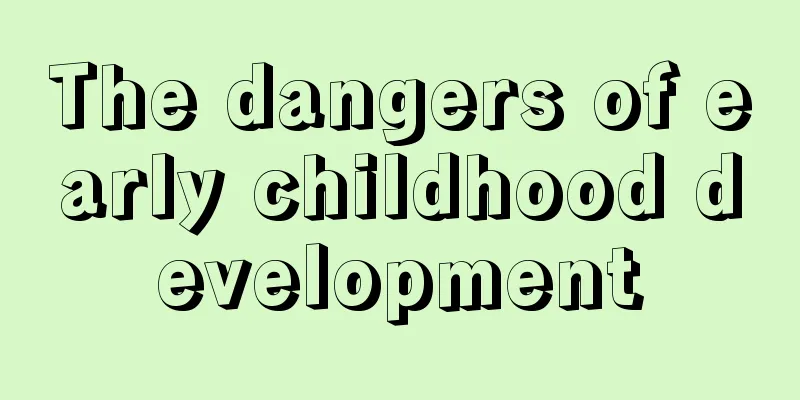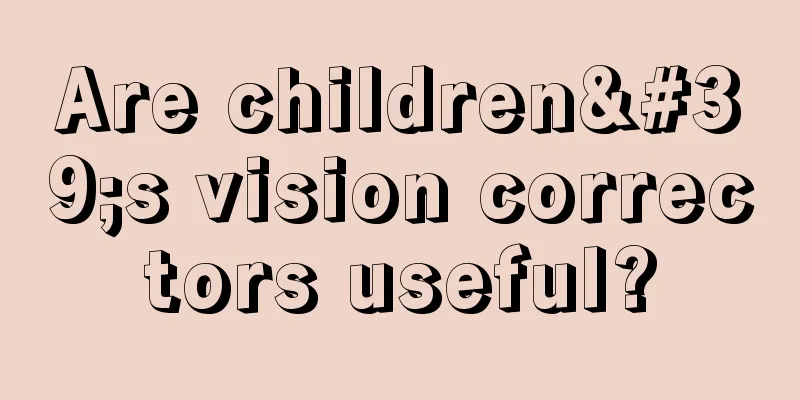How to tell if a child has stomach worms

|
In real life, many children do not pay attention to personal hygiene habits and fail to wash their hands before meals and after defecation. Therefore, they are easily contaminated with bacteria, which may lead to the growth of roundworms over time, affecting their physical health. Of course, whether a child has roundworms in his stomach cannot be told from the surface. So how do you tell if a child has worms in his stomach? What are the symptoms if there are worms in the baby's stomach? Let us take a brief look at it below. Patients with intestinal parasites may experience the following abnormal symptoms : 1. The child often complains of stomach pain, especially around the navel, and likes to massage the area. When the pain is gone, the child will continue to play as usual. 2. Children are easily awakened, grind their teeth and drool during sleep at night; 3. There are often pale white, nearly circular or oval patches on the face and neck of children, with small grayish white scales on them, which are commonly known as "worm spots"; 4. The child's skin often has "wind bumps" (urticaria) repeatedly without obvious reasons; 5. The child has a poor appetite. Some children have partial or unusual eating habits. The child likes to eat strange things such as paper and cloth. 6. Worms compete with children for nutrition in the intestines, which can affect their growth and development, leading to malnutrition and anemia; 7. When the larvae migrate, symptoms such as coughing, chest pain, asthma, difficulty breathing, fever, itchy skin, and increased eosinophilia in the blood may occur; 8. Adult worms in the intestines can cause complications such as parasitic intestinal obstruction, appendicitis, and peritonitis. These symptoms can help you determine whether your baby has stomach worms. If these symptoms are not present, then it can be determined that your baby does not have stomach worms. In life, many parents judge whether their children have abdominal parasites based solely on whether the baby has "worm spots" on the face, whether the baby grinds his teeth at night, or whether he has abdominal pain and other symptoms. This practice is not scientific. "Worm spots" are a skin disease caused by a lack of B vitamins, medically known as simple pityriasis. Although the toxins secreted by roundworms can induce nocturnal bruxism, it can also be caused by mental stress, calcium deficiency, dental diseases, etc. It is unreliable because of its lack of specificity. As for stomach pain, there are more reasons, such as intestinal cramps, cold abdomen, enteritis and abdominal epilepsy, etc. Parasites are only one of the factors. |
>>: What to do if your child is allergic
Recommend
What is a teething stick?
Many parents will buy some teething sticks or bis...
What to do if children are allergic to mites
Mites often lurk around us, but we don't know...
Is it okay for babies to wear diapers for a long time?
Diapers are a daily necessity specially developed...
What are the symptoms of ADHD in children?
ADHD is a relatively common disease in children. ...
What causes fecal incontinence in children?
Fecal incontinence is a symptom that occurs in bo...
What to do if your child is too delicate
Children are the center of a family and everyone ...
Baby has fever and swollen lymph nodes
Most parents will pay special attention when thei...
How to treat mycobacterial infection in children?
Children have poor resistance, so they are prone ...
Can children with cerebral dysplasia be cured?
Brain maldevelopment in children is a relatively ...
What to do if your 2-year-old baby has a runny nose
The weather in spring is changeable. It is cold i...
How to treat babies who keep waking up during sleep
Many of us are worried about our baby always waki...
How to deal with a baby's first fever
When a baby has a fever for the first time, many ...
How should allergic asthma in children be treated?
The symptoms of allergic asthma are often indisti...
What should I do if my baby has nasal mucus?
The main reason why babies have nasal mucus is be...
What to do if your child has small pimples on his hands
Children are the hope of the motherland and the f...









